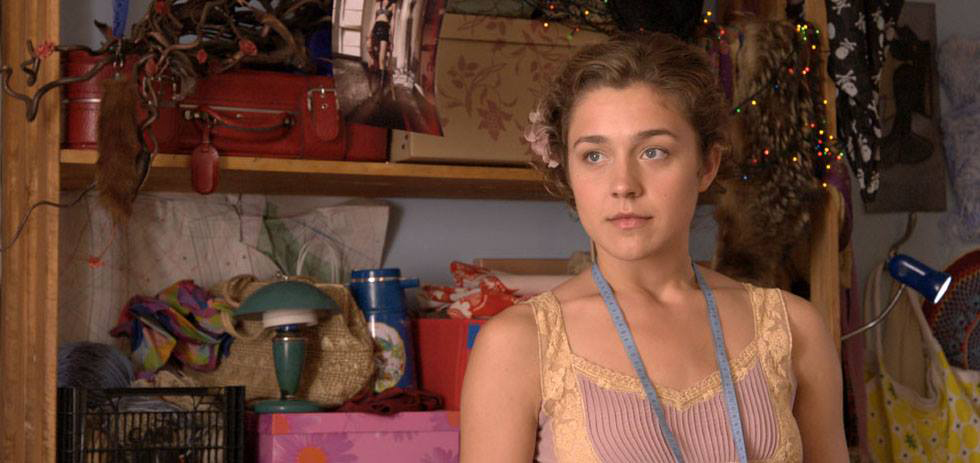
Those disquieted by the male authorship and public feather-ruffling of Blue Is the Warmest Colour would do well to see The Summer of Sangaile, in which Lithuanian writer-director Alanté Kavaïté plays out a powerful lesbian relationship on a deliberately smaller scale. In that comparison, going from a years-long dissection of attachment to a Summer Like No Other shared between mousey stunt plane enthusiast Sangaïlé (Julija Steponaityte) and budding bohemian Auste (Aiste Dirziute) reads like an infantilisation, but Kavaïté finds in the tighter boundaries a refined and sympathetic narrative, which speaks through composition and says much with little dialogue.
In the midst of an aimless summer, Sangaïlé catches the eye of Auste at an air show, and is invited out with her friends to heady escapades by the country lake. Beats of joyriding and daredevil antics are a dime a dozen even in current music videos, but the capable cast and DOP Dominque Colin’s frames bring a refreshingly controlled realism to them all. This makes the transition into the central love affair that much smoother, jolted as we might otherwise be by being taken from Sangaïlé’s barren attic to Auste’s exploded scrapbook of a bedroom, and it only holds true as Sangaïlé slowly reverts from her hushed introversion – expressed through gentle crane shots as she takes drugs and dwells alone in the countryside – into sweet costumed intimacy with the girl next door, played marvelously by Dirziute.
With Kavaïté finding literal highs, establishing plane flight as Sangaïlé’s true aspiration is certainly on the nose. It’s the first of a few obvious choices, with a yonnic conch shell motif in scenes with Auste and the English words “my dream” being splashed across the aircraft that the heroine flies off into the sunset with. The lack of subtlety is negligible, however, when weighed with the maturity Kavaïté unearths in other places. Sangaïlé’s mother, for instance, starts out a figure blending into the modernist chic of her country villa like a marble statue, but is later granted a bracing monologue where her wanderlust briefly colludes with her daughter’s without her even knowing. Best of all is in the aerial ballet of the stunt planes, which are a crown jewel shared between Colin and editor Joëlle Hache. With minimal GoPro quick-fixes and a knack for inserts that evoke the feeling of flying rather than reconstruct the process, Sangaïlé’s wonder becomes our own without Steponaityte ever having to drop her stony exterior.
And of course, there’s the central romance, and no filmic love story worth its salt is purely about love, so both Sangaïlé and her film have a bundle of compulsions and insecurities to deal with that Auste often, but not always, factors into. The other wolf she feeds beside her physical intimacy, (assuming, for the moment, that such instincts can be nonarbitrarily separated) is her habit of self-harm, which has left horizontal scratches up and down her arms that she compulsively hides with long-sleeve shirts. Kavaïté never falls into common assumptions about such behaviour, e.g. it being a desire for death or a bid for attention, and although it inspires the most moving expressions of affection from Auste through imaginative costumes and photo shoots, it is never explicitly glorified but dealt with in an open fashion.
It’s a shame that such tact isn’t always applied well. The two girls’ inevitable conflict, while suitably ingrained in Sangaïlé’s personal struggles, doesn’t quite make sense and feels most beholden to the traps of the coming-of-age story than anything else. It’s a sore moment in an otherwise beautiful ending that keeps the focus squarely on the titular character and sketches a mature outcome to their interactions without blatantly serving up all of its details; fitting for what is a transporting piece from a director we hopefully will not wait so long to see more from.1
Around the Staff
| Mei Chew | |
